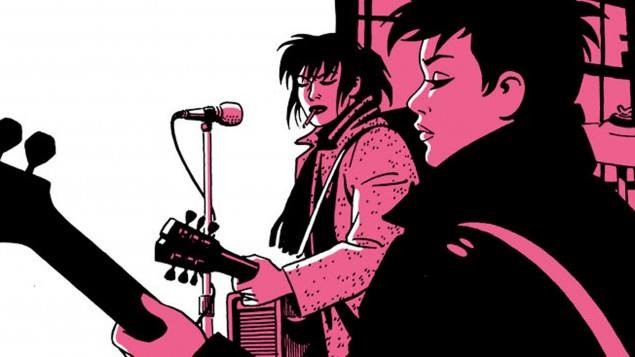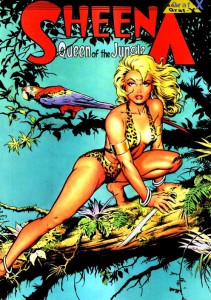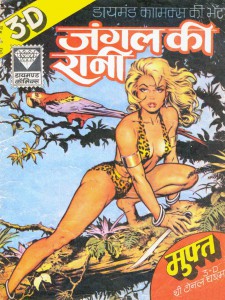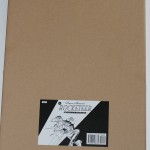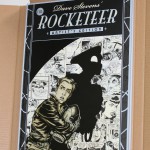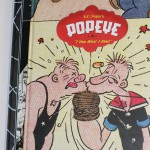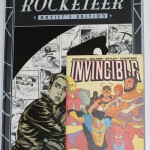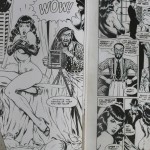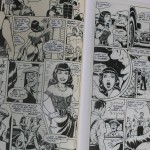Two songs by two of my favourite Indian composers – AR Rahman’s ‘Dilli 6’, from the movie of the same name was released in 2009 and Amit Trivedi’s ‘Dilli’, from No One Killed Jessica came out last month. I haven’t heard the first in about a year, due to a self-imposed hiatus. The other’s been on my playlist the past few days. Both songs are written and composed around the same city – Delhi. (d-uh!) Both of them feature a melange of vibrant sounds that one would not really associate with the idea of a song about the capital of India. Rahman goes in for a chill-out/club-music vibe (French lyrics! an analog synth groove!), while Trivedi layers his track with screaming distortion guitars that occasionally meander into Indian classical/prog-rock territory.
Female voices begin each song. Tanvi Shah’s velvet vocals, heavily processed, introduce us to ‘Dilli 6’. Her inflection of the words has a distinct accent, “yeh Dilli” comes out as ‘E Delhi’. The languorous vibe of the song is broken by Benny Dayal and Blaaze’s chanting, and from then on, the song gives us a series of pleasant musical surprises – syncopated rap in French, a very effective use of the beat and a scratchy fill that punctuates key phrases.
‘Dilli 6’ is about the city, or rather, an introduction to the city. Come hither, the city is great. ‘Bas ishq mohabbat pyaar.’ Right, the city is just perfect for the lover, for the artist, it embraces you tight and scolds you soundly. But obviously, if you are practical enough, you should make sure you have your seat-belts fastened, there is enough cash in your wallet and the air-conditioner is switched on.
‘Dilli’ is from the point of view of one who lives in Delhi. Sure, he loves the city, but it’s love-tinged-with-irony, the casual cruelty reserved for the lover without whom you cannot do with, but resent her presence and her effect on you all the same. ‘Mera kaat kalejaa Dilli, mui Dilli le gayi’ – ‘it has cut my liver out, Delhi has’ goes the main refrain. Trivedi’s musical aesthetic, as I have noted before, seeks to bring out a raw scruffiness that is usually missing from mainstream Indian cinema, and ‘Dilli’, head-banger of a song though it may be, is a perfect example of this. It aims for the gut. From the scraping, echoey intro guitar loop that warns you of yet another day in a city that sucks the blood out of you, the song, once it starts, is breathless – the female voice ( Aditi Singh Sharma, a Trivedi regular) rat-a-tats the word ‘Dilli’, the drums and the male voices – Toshi Raina and Shriram Iyer sing the bulk of the song in unison. All three singers get their Delhi vibe just right – no pan-Indian song, this one.
On a side, there is this new wave of Delhi-centric movies that get the city. I am not really sure I am qualified enough to say this myself – I have passed through Delhi every now and then, and all my interactions have been through the filter of close friends. Remember Sarfarosh and Dil Se, which were set in the city? The only time you recognized Delhi as an entity was the morning shots in the fog at Connaught Place. Not so the post-Dibakar Bannerjee era, where the city becomes real – its inhabitants are the inhabitants of the capital, speaking the vernacular, not pretenders from Film City. Which reminds me – go watch Band Baaja Baarat. It has its flaws, but I had fun. End aside.
I could be wrong – but is the Dilli in the Rahman song addressed as a male (I know most of the lyrics just refer to it as a city, but the lines ‘badaa kaske gale lagaata hai’ personify it, I thought), while the one in Trivedi’s song is the bitch-from-hell lover?
Rahman’s song has an epic build-up moment. At a point, as the male voices chant the ‘yeh Delhi hai’ refrain, the bassline throbs, Rahman makes his way through ear-friendly chords, heavily-processed French horns and timpanis pronounce euphoria and grandeur. No such moments in Trivedi’s composition – the only ear-friendly portion comes when all three voices come together in magnificent harmony.
I played ‘Dilli 6’ again just now, and I notice that this song, as well, has a subtly recurring guitar riff. Nice.
All that said, I am really impressed by the way Trivedi’s been carving his own path, refusing to stick to a single style – for all my talk of his rawness, the soundtrack of Aisha was the only IFM soundtrack that has been consistently on the iPod all year, and the polish of it gives me a quick kick to the rear my trying-to-find-patterns inner critic. Right now, I am fixated on ‘Shaam’, the under-rated song of the album, shot in the film in a style that fits its stoner roots. I have not heard Udaan properly yet, (and haven’t seen the film, either) apparently No One Killed Jessica has usurped its place on the Trivedi queue.
Read: Aadisht’s lovely examination and deconstruction of what makes the Dilli 6 song tick, where I am also mentioned.
